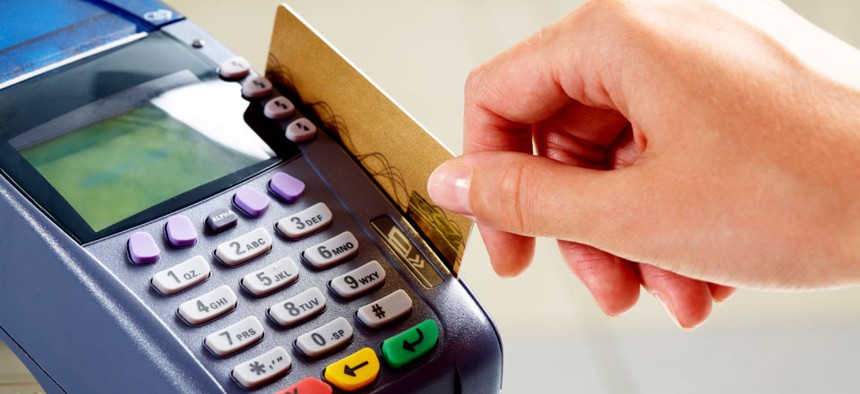Accepting Credit Card Payments Involves Risk -- Even If You're the Government

Pressmaster/Shutterstock.com
But that risk can be minimized in a few simple steps.
Too many organizations are failing to protect customer data, as evidenced by the recent Target breach, and government offices aren't immune to the problem, according to a new report.
Verizon, whose services include assessing payment card system security, found that 88.9 percent of its clients failed their baseline assessment.
Although the sample size was too small to draw conclusions about public sector security, Verizon researchers said the findings speak to cardholder data protection across all organizations, not just retailers.
By doing business with cards bearing Visa or MasterCard logos and other financial brands, entities including “Army and Navy commissaries for purchasing foods” and offices handling “copay at VA hospitals” for the Veterans Affairs Department take on a risk, said Aaron Reynolds, managing principal for payment card industry consulting at Verizon.
Between 2011 and 2013, organizations that endured a cardholder data hack were typically neglecting a crucial step for spotting red flags: looking at the access logs.
Entities suffering a breach were much less likely to monitor payment device logs, according to a comparison of Verizon’s annual data breach investigation report and the new report.
"This requirement came last in our index, suggesting that failing to manage logs effectively is a key contributor to your chances of suffering a loss of cardholder data," wrote the authors of Verizon’s 2014 report on compliance with payment card industry security standards. Security controls measured by Verizon were ranked by extent of compliance.
"One of the main risks is that debit or credit card data continues to be on the top of the list of what hackers are targeting," Reynolds said.
Get the Nextgov iPhone app to keep up with government technology news.
(Image via Pressmaster/Shutterstock.com)






